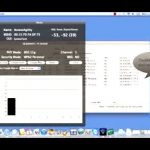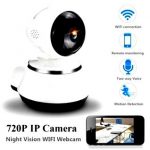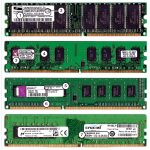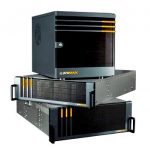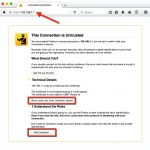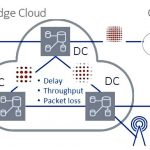Cloud & pour point analyser
Contents
- Cloud Point:
- ASTM D2500 – ASTM D5771 – ASTM D5772 – ASTM D5773Noise 51597IP 219 – IP 444 – IP 445 – IP 446ISO 3015
- ASTM D97 – ASTM D5853 – ASTM D5950IP 15 – IP 441ISO 3016
- CE marked
- Subject
- Calculating Cloud and Pour Point Principle
- Calculating Cloud and Pour Point Devices
- Calculating Temperature Probe
- Calculating Parameters
- Software Features
- The program includes:
- Integrated Touchscreen Panel PC
- Test Jar
- Air Conditioning
- ASTM D2500 – ASTM D5771 – ASTM D5772 – ASTM D5773Noise 51597IP 219 – IP 444 – IP 445 – IP 446ISO 3015
- ASTM D97 – ASTM D5853 – ASTM D5950IP 15 – IP 441ISO 3016
- CE marked
- Subject
- Calculating Cloud and Pour Point Principle
- Calculating Cloud and Pour Point Devices
- Calculating Temperature Probe
- Calculating Parameters
- Software Features
- The program includes:
- Integrated Touchscreen Panel PC
- Test Jar
- Air Conditioning
- Safety Devices
- Electrical Power
- Cord Cable
- Ambient Temperature
- Computer Basics: What is the Cloud?
Cloud Point:
ASTM D2500 – ASTM D5771 – ASTM D5772 – ASTM D5773
Noise 51597
IP 219 – IP 444 – IP 445 – IP 446
ISO 3015
Pour Point:
ASTM D97 – ASTM D5853 – ASTM D5950
IP 15 – IP 441
ISO 3016
CE marked
Subject
Cloud Reason for oil products and biodiesel fuels.
Pour Reason for oil products, crude oils, motor and engine oils, additives, lubricating oils, …
Calculating Cloud and Pour Point Principle
Cloud Point
The sample is cooled lower based on the methods as the clouds appearance is noted around the silver bottom from the test jar by way of an optical sensor. The measurement is performed by reflection around the silver bottom from the test jar using a fast light detector. The signal from light detector is traded through the LabLink software. The dynamic measurement is conducted whatever the sample’s colour.
Pour Point
Based on the methods, the sample is cooled lower in a specified rate and, in the prescribed temperature times, the mechanical arm from the analyser lifts the exam jar in the cooling jacket and tilts it to be able to take it in horizontal position to check the flow from the product. The sample movement is detected through the thermal probes (PT100 recognition) placed over the sample surface which react if touched through the cooled sample.
Calculating Cloud and Pour Point Devices
- Cloud: light pulsed emission on I.R spectrum via a coaxial fibber optic
- Pour: platinum resistance PT100 class A
- Pour: mechanical moving arm getting the exam jar in horizontal position

Calculating Temperature Probe
- Platinum resistance PT100 class A
- The Cloud Point PT100 is touching the foot of the exam jar
Calculating Parameters
- Temperatures: in °C
- Calculating range: +80°C … -80°C
- Resolution: .06 °C
- Precision: ± .1 °C
- Repeatability / Reproducibility: according to standards methods or better
Software Features
New LabLink software in a position to manage as much as 6 analytical heads concurrently (standalone)
- Easy to use interface
- All analytical parameters recorded
- Customizable analysis parameters and techniques
- Customizable results report
- Printable graphs and results
- Self-identification from the typology from the analysers connected
The program includes:
Analysis Menu
- Standard method according to ASTM / IP / ISO / EN / DIN… norms of reference:
- internal, with sample pre-heating, for Pour Point only
- exterior, without sample pre-heating, for Pour Point only
- Optional methods:
- fast bath, to lessen time of research
- T-sample – T-bath (delta T constant)
- cooling rate °C / h
- Audible alarm and displayed messages in the finish from the analysis as well as in situation of errors and/or malfunctions
Diagnostic Menu
- Immediate access to any or all analog, digital, inputs and outputs
- Selectable value displaying: °C / Volt
Calibration Menu
- Automatic calibration of every temperature probe
- Last calibration date known each single probe displayed and relative data printable
- Display of calibration diagram
- Insertion of offset values
- Standard and advanced calibration modes
Data Utilities
- Fields for introduction of operator and product name
- Archive viewer for files recall
- All analysis kept in Excel® compatible format
- Storage capacity in excess of 60’000 analysis
- LIMS compatible
Integrated Touchscreen Panel PC
- TFT/LCD 12″
- Resolution 1024 × 768, 16.2 M colours
- 2 USB ports for link with an exterior printer and/or exterior PC
- Storage capacity in excess of 60’000 analysis
Test Jar
- Same dimensions and volume as explained the conventional test methods
- Product level mark
- Small edge on top to be able to fix the glass cell towards the analytical mind
- Silvered bottom with anti-scratch film protection
Air Conditioning
Cloud Point:
ASTM D2500 – ASTM D5771 – ASTM D5772 – ASTM D5773
Noise 51597
IP 219 – IP 444 – IP 445 – IP 446
ISO 3015
Pour Point:
ASTM D97 – ASTM D5853 – ASTM D5950
IP 15 – IP 441
ISO 3016
CE marked
Subject
Cloud Reason for oil products and biodiesel fuels.
Pour Reason for oil products, crude oils, motor and engine oils, additives, lubricating oils, …
Calculating Cloud and Pour Point Principle
Cloud Point
The sample is cooled lower based on the methods as the clouds appearance is noted around the silver bottom from the test jar by way of an optical sensor. The measurement is performed by reflection around the silver bottom from the test jar using a fast light detector. The signal from light detector is traded through the LabLink software. The dynamic measurement is conducted whatever the sample’s colour.
Pour Point
Based on the methods, the sample is cooled lower in a specified rate and, in the prescribed temperature times, the mechanical arm from the analyser lifts the exam jar in the cooling jacket and tilts it to be able to take it in horizontal position to check the flow from the product. The sample movement is detected through the thermal probes (PT100 recognition) placed over the sample surface which react if touched through the cooled sample.
Calculating Cloud and Pour Point Devices
- Cloud: light pulsed emission on I.R spectrum via a coaxial fibber optic
- Pour: platinum resistance PT100 class A
- Pour: mechanical moving arm getting the exam jar in horizontal position

Calculating Temperature Probe
- Platinum resistance PT100 class A
- The Cloud Point PT100 is touching the foot of the exam jar
Calculating Parameters
- Temperatures: in °C
- Calculating range: +80°C … -80°C
- Resolution: .06 °C
- Precision: ± .1 °C
- Repeatability / Reproducibility: according to standards methods or better
Software Features
New LabLink software in a position to manage as much as 6 analytical heads concurrently (standalone)
- Easy to use interface
- All analytical parameters recorded
- Customizable analysis parameters and techniques
- Customizable results report
- Printable graphs and results
- Self-identification from the typology from the analysers connected
The program includes:
Analysis Menu
- Standard method according to ASTM / IP / ISO / EN / DIN… norms of reference:
- internal, with sample pre-heating, for Pour Point only
- exterior, without sample pre-heating, for Pour Point only
- Optional methods:
- fast bath, to lessen time of research
- T-sample – T-bath (delta T constant)
- cooling rate °C / h
- Audible alarm and displayed messages in the finish from the analysis as well as in situation of errors and/or malfunctions
Diagnostic Menu
- Immediate access to any or all analog, digital, inputs and outputs
- Selectable value displaying: °C / Volt
Calibration Menu
- Automatic calibration of every temperature probe
- Last calibration date known each single probe displayed and relative data printable
- Display of calibration diagram
- Insertion of offset values
- Standard and advanced calibration modes
Data Utilities
- Fields for introduction of operator and product name
- Archive viewer for files recall
- All analysis kept in Excel® compatible format
- Storage capacity in excess of 60’000 analysis
- LIMS compatible
Integrated Touchscreen Panel PC
- TFT/LCD 12″
- Resolution 1024 × 768, 16.2 M colours
- 2 USB ports for link with an exterior printer and/or exterior PC
- Storage capacity in excess of 60’000 analysis
Test Jar
- Same dimensions and volume as explained the conventional test methods
- Product level mark
- Small edge on top to be able to fix the glass cell towards the analytical mind
- Silvered bottom with anti-scratch film protection
Air Conditioning
Integrated gas CFC free motor compressors:
- Single stage (for temperatures as much as -40°C / 1)
- Double stage (for temperatures as much as -80°C / 2)
Outfitted by having an automatic energy power save system. After fifteen minutes in the finish from the analysis the air conditioning gets into stand-by mode.
Safety Devices
- Pressure controller for first stage motor compressor
- Pressure controller for second stage motor compressor
- Thermostat for second stage activation
- Thermo-switch for every cooling / heating jacket
- Motor compressors outfitted with internal overload devices
Electrical Power
- 220V ± 15% / 50 to 60 Hz
- 115V ± 15% / 60 Hz
Cord Cable
- 3 conductors flexible cable 2 m (7 ft) length with PVC sheath oil as well as heat resistant according to CENELEC directives
Ambient Temperature
- Max 32 °C
- H.R. 80%
Partner: LINETRONIC TECHNOPLOGIES SA
Resourse: http://labgulf.com/29/234/


